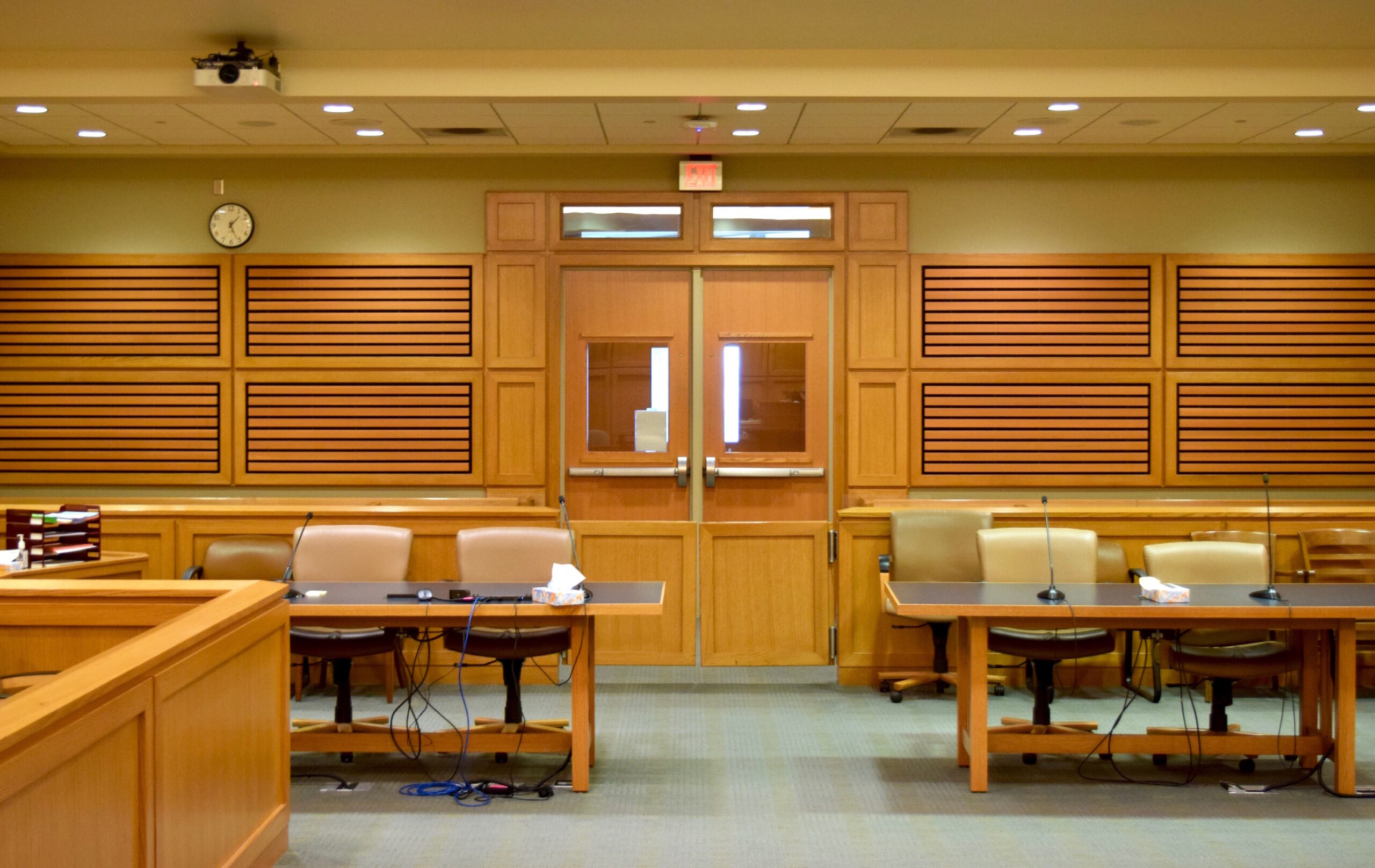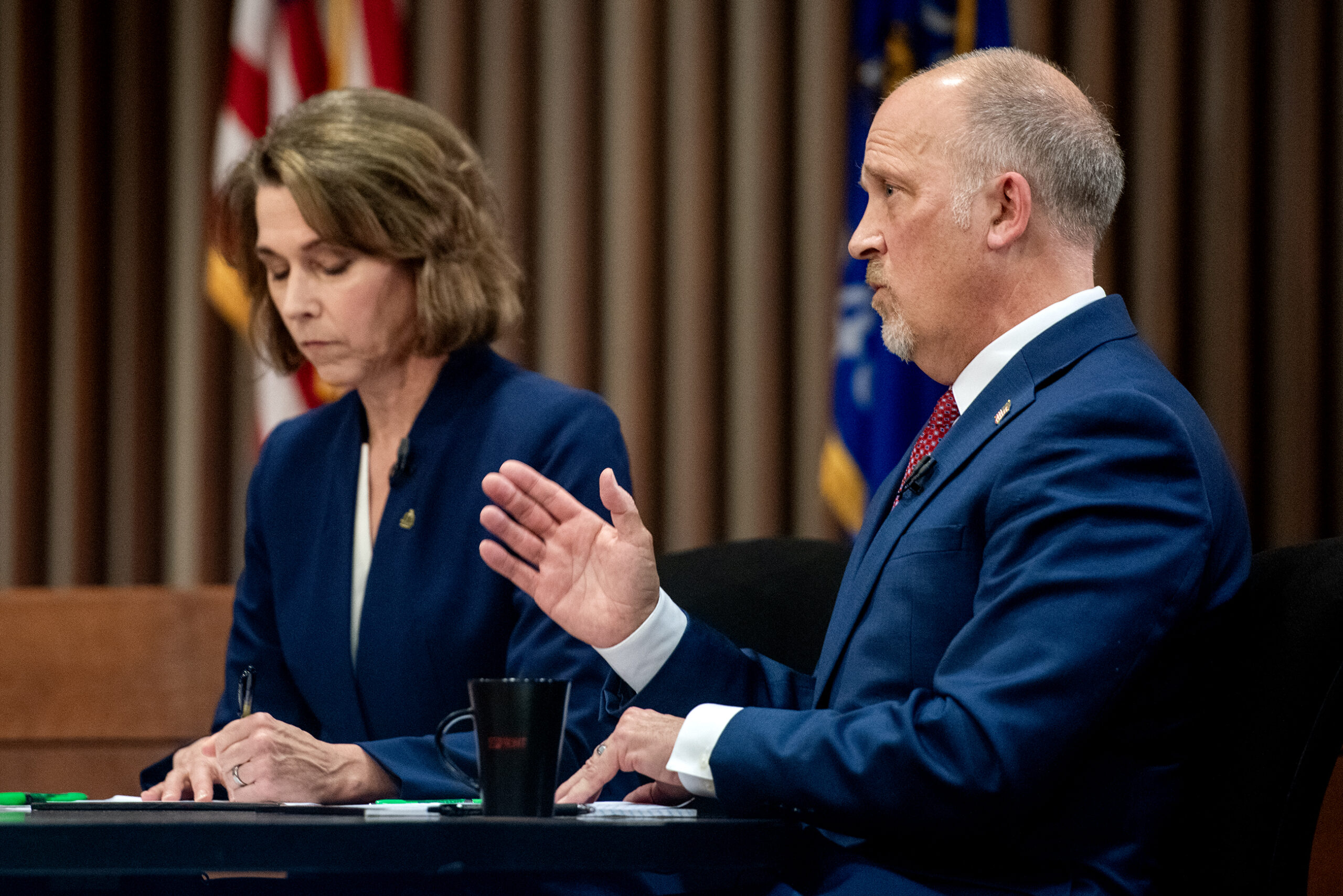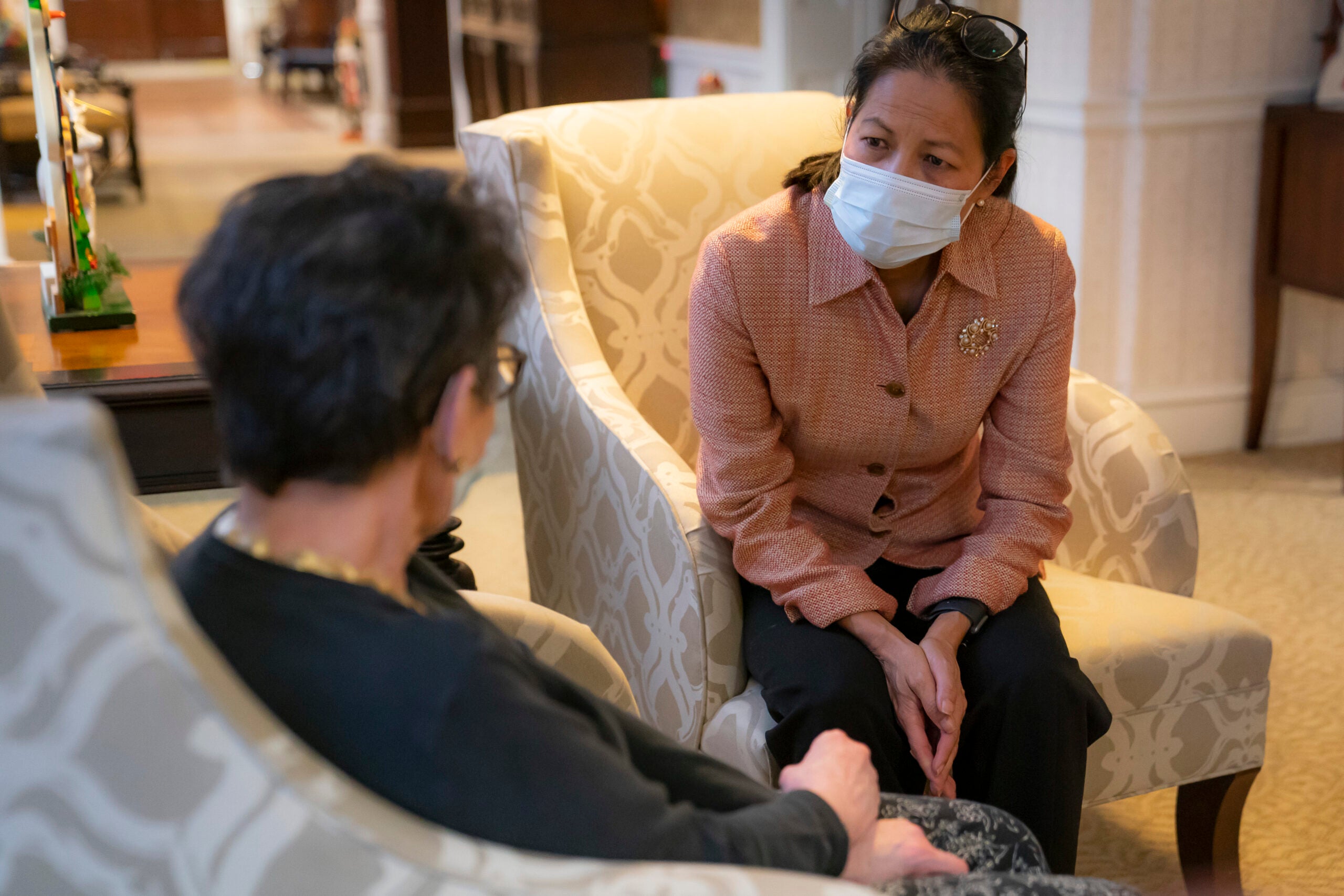A Wisconsin bill aims to speed up criminal proceedings when older victims or witnesses are involved.
The legislation, which advanced to public hearings this month, says courts have a duty to expedite proceedings involving any victim or witness over age 60, and that judges have to take that duty into account when weighing motions for delays.
And, when a witness is over 60, the bill would allow that person’s testimony to be recorded to be used as evidence at a potential future trial.
Stay informed on the latest news
Sign up for WPR’s email newsletter.
State Rep. John Macco, R-Ledgeview, said the bill’s goal is to protect the elderly from abuse.
“As degenerative brain diseases increase in elderly population, too many folks that are defending these hoodlums know that, and stretch it out as long as they can thinking, ‘Gee whiz, she’s slowly and surely becoming less and less effective,” Macco told the Senate’s Committee on Judiciary and Public Safety. “‘So we’ll just drag this out for a year and see if she’d be incapable of testifying in the future.’”
But the Office of the Wisconsin State Public Defender said the proposal raises due-process concerns.
The legislation specifies that recorded testimony would need to happen with the defendant present, and with allowances for cross-examination when “not unduly repetitious.”
But Adam Plotkin, a lobbyist for the public defender’s office, said if that testimony happens early on in the proceedings, defense attorneys may not yet have access to all of the evidence they need to be prepared for cross-examination.
And he said pre-recorded testimony is no substitute for testimony that happens in-person before a jury.
“It limits the ability for the jury or the trier of fact to see and hear other contexts and nonverbal cues by the witnesses or others in the courtroom,” Plotkin told state lawmakers.
The public defender’s office also argued the age threshold of 60 is arbitrary, and doesn’t take into account someone’s physical or mental health status.
A similar proposal passed Wisconsin’s Senate last session, but never cleared the Assembly.
The bill was one of several recommendations to come out of an elder abuse task force convened in 2017 by Wisconsin’s then-Attorney General Brad Schimel.
Wisconsin Public Radio, © Copyright 2025, Board of Regents of the University of Wisconsin System and Wisconsin Educational Communications Board.



